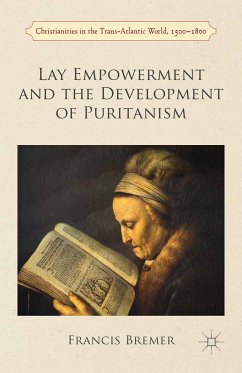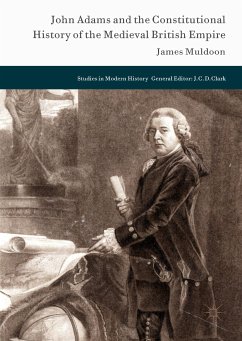
Lay Empowerment and the Development of Puritanism (eBook, PDF)
Versandkostenfrei!
Sofort per Download lieferbar
26,95 €
inkl. MwSt.
Weitere Ausgaben:

PAYBACK Punkte
13 °P sammeln!
A study of the rise and decline of puritanism in England and New England that focuses on the role of godly men and women. It explores the role of family devotions, lay conferences, prophesying and other means by which the laity influenced puritan belief and practice, and the efforts of the clergy to reduce lay power in the seventeenth century.
Dieser Download kann aus rechtlichen Gründen nur mit Rechnungsadresse in A, B, BG, CY, CZ, D, DK, EW, E, FIN, F, GR, HR, H, IRL, I, LT, L, LR, M, NL, PL, P, R, S, SLO, SK ausgeliefert werden.












